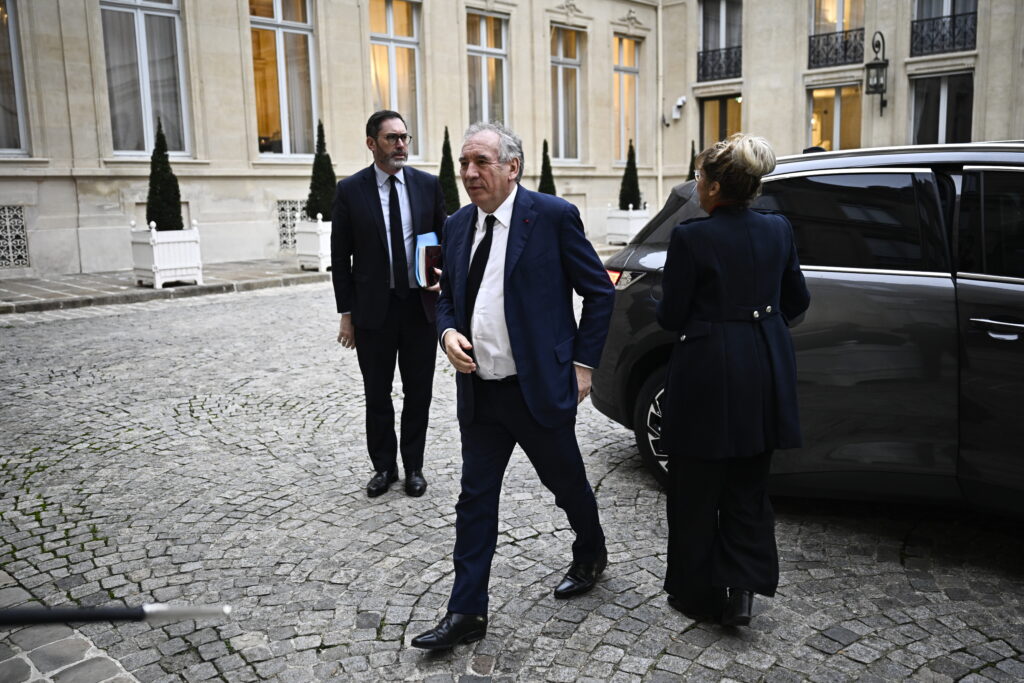France finds itself facing a political deadlock, with Prime Minister François Bayrou seeking a confidence vote from parliament on September 8th to advance his minority government’s plans for sweeping budget cuts worth €40 billion. This “high-risk gamble,” as several newspapers headline today in the country (Le Parisien, Le Figaro, among others), appears difficult to win from the outset for the Matignon resident, as opposition parties prepare to vote down the government. National Rally leader Jordan Bardella declared that the confidence vote marks the end of the Bayrou government, while Marine Le Pen stated there would be no support from her party.
The left, through France Unbowed and the Greens, is also expected to vote against, highlighting dissatisfaction with the government’s cuts and economic policies. The clash between the government and opposition parties reveals the political impasse, with the Socialists holding the “golden vote” for the government’s survival or collapse.
For now, however, the Socialists also “lean” toward “no,” with party leader Olivier Faure characterizing it as “unthinkable” to support the Bayrou government in his interview with Le Monde, adding that he has chosen to “leave.” It should be noted that until today, Bayrou and his coalition control 210 out of 577 seats and are forced to seek compromises on every issue.
It’s worth noting that among the austerity measures, it’s planned that from the public administration, up to 3,000 jobs could be lost by 2026. Additionally, one in three retiring civil servants will not be replaced. Another planned measure is the elimination of two public holidays per year (France has 11). François Bayrou has targeted May 8th and Easter Monday, while one of the key measures is the “blank year,” meaning the freezing in 2026 of tax brackets, social security benefits, and pensions at 2025 levels.
French finance minister warns of “IMF raid” as French bonds collapse
French Finance Minister Éric Lombard sounded an alarm in case the 2026 budget is not approved, noting that the risk of an “IMF raid” must be avoided.
It’s noted that French bond yields rose to their highest level since March, while the premium investors demand to hold French bonds instead of German ones increased significantly after Prime Minister François Bayrou’s announcement of a confidence vote in his government.
Specifically, the yield on 10-year French bonds increased by 9 basis points in limited trading after market close, reaching 3.508%, the highest level since March.
The spread between 10-year French and German bond yields, the premium investors require to hold French debt instead of German, widened by almost 7 basis points to the highest level since April.
Yellow Vest memories in France: “Block everything”
Resistance to the plans of the most unpopular policies in the history of the Fifth French Republic (approval ratings below 20% according to YouGov data) is strong – not only from the opposition but also from civil society. For weeks now, a movement called Bloquons Tout (block everything) has been forming, aiming to paralyze the country on September 10th, demanding the budget not be passed.
As French media write, this is a rather… opaque movement, without an obvious leader, constitution, or anything related, which has essentially been growing since mid-July, when François Bayrou made an address about the budget and France’s economic situation. “On September 10th we don’t pay, we don’t consume, and we don’t work,” states the related message that has spread on the internet.
The left has already “embraced” the mobilizations. The founder of “France Unbowed,” Jean-Luc Mélenchon, along with several members of his party, supported the movement in an article published in La Tribune Dimanche newspaper on August 16th.
“We will not allow it!” began the article, before describing the government’s recent budget proposal as “catastrophic.”
Similarly, on August 19th, Green MP for Paris Sandrine Rousseau told FranceInfo: “I want people to hear the voices of those who are rising up… It’s important to understand that part of the population today doesn’t just lack the means to live, but the means to survive.”
On August 20th, the Communist Party expressed its intention to participate in the blockade, while Socialist leader Olivier Faure stated in his Monde interview that “our place is not in the streets,” as the related initiative belongs to the unions.
It’s noted that personalities who led the 2018 Yellow Vest mobilizations aimed at Macron’s resignation played a leading role in spreading the “Bloquons Tout” movement, while the first message was spread on the internet by the group Les Essentiels, a group allegedly connected to far-right and conspiracy circles (according to French RFI), with the movement claiming it has no connections to political circles.




